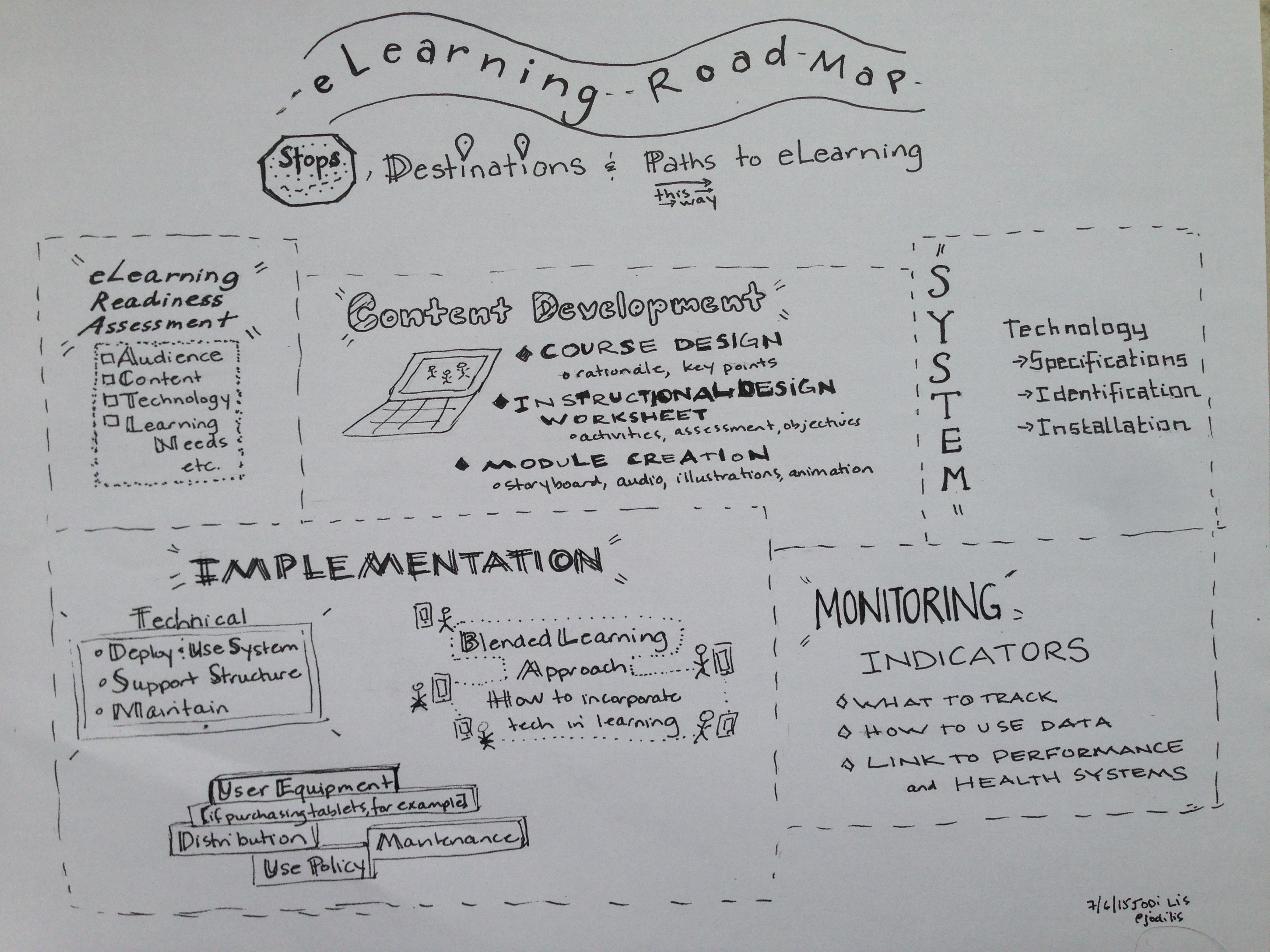“The journey of a thousand miles begins with one step.” – Lao Tzu
 In the work that I do in eLearning, I find that people “don’t know what they don’t know.” They know some buzzwords like LMS and eLearning. They think technology is a cool thing to do. For many, technology is a learning solution to reach more people and reduce costs for training. But they don’t know the many paths, stops and destinations it takes to do eLearning.
In the work that I do in eLearning, I find that people “don’t know what they don’t know.” They know some buzzwords like LMS and eLearning. They think technology is a cool thing to do. For many, technology is a learning solution to reach more people and reduce costs for training. But they don’t know the many paths, stops and destinations it takes to do eLearning.
There are alot of those paths, stops and destinations. I created the eLearning RoadMap to have a place to begin when people say that they want to do eLearning. When I start describing what is involved with integrating technology into an activity, they are usually quite surprised.
In big looping overall terms, the destinations and stops on the roadmap are fairly self-explanatory. Underneath are many paths that need to be traveled.
“Every project has a needs assessment.” Do you know what the digital literacy level is of the people that you want to work with?
“Of course, you need content.” It means adapting the print and face-to-face training materials in a format good for eLearning, not making .pdfs available to all.
“Duh, you must have a system for the technology.” To many it is the hardest part, but it actually the easiest.
Implementation usually stumps people. They have no idea how much there is to think about when planning and implementing technology. People’s eyes get wide when I start rambling about that.
“Yes, we need to monitor and collect data.” I am thinking about data beyond how many people took the training and what their quiz scores are. I want to connect learning data to health systems. There is talk constantly of connecting learning to performance but how? Let’s figure it out.
For me the first step on the journey of eLearning is describe these stops, destinations and paths. And what an amazing journey it will be.